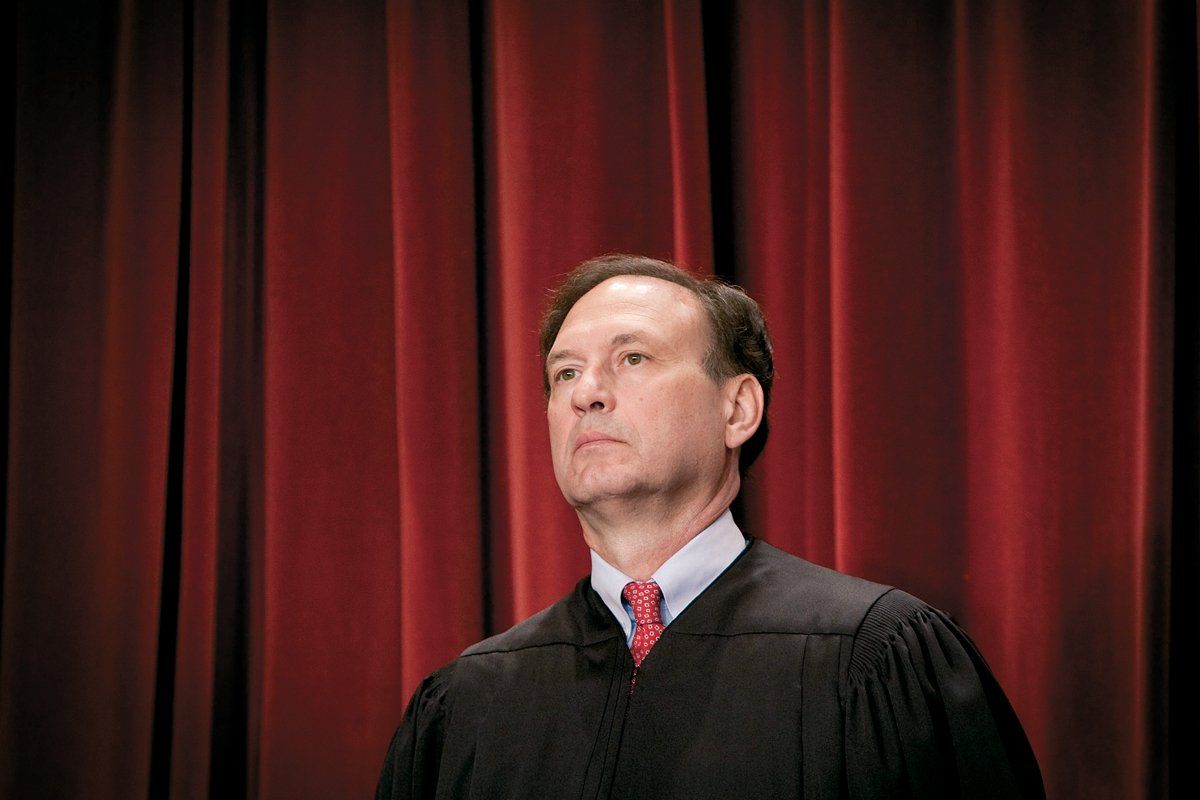
For the first Amendment and its friends, this has been a fine year. It began with a less-than-momentous but welcome Supreme Court ruling that Barack Obama called "devastating to the public interest." And last week the court agreed to rule on the constitutionality of a state campaign-finance law patently designed to decrease the amount of political speech Arizonans can hear. Schemes for rationing and suppressing such speech continue to crumble.
During the Jan. 27 State of the Union address, television showed Supreme Court Justice Samuel Alito murmuring "not true" when Barack Obama told the nation something that was not true. Six days earlier, the court, in the Citizens United case, ruled that because the First Amendment proscribes laws limiting political speech, it proscribes laws that outlaw independent candidate-related advocacy by groups of Americans organized as corporations. The court had held in 2007 that the First Amendment protects issue advocacy by corporations.
The president had to know he was deceiving the nation when he said this "reversed a century of law." The 1907 law forbidding direct corporate contributions to candidates still stands. Writing in The Weekly Standard, William R. Maurer of the Institute for Justice explains the actual significance of Citizens United: "Corporations and unions are not individuals, but they are made up of individuals who have banded together for common purposes … To hold that First Amendment rights dissipate the minute one person begins to act in concert with another would neuter the Bill of Rights."
Arizona's law punishes candidates who do not accept taxpayer funding and the limits on spending that come with it. Those are limits on what most political spending finances—the dissemination of political speech. Taxpayer-funded candidates receive additional tax dollars—up to double their original infusion—to match funds raised by candidates who, relying on voluntary contributions, spend above the limits.
There is an astonishing additional provision to punish political speech the government disfavors: When independent political groups—groups that cannot coordinate with, let alone be controlled by, candidates—spend what the government considers too much in opposition to a publicly funded candidate, or in favor of a privately funded candidate, the government gives matching funds not to independent groups supporting the publicly funded candidate but directly to that candidate—and to any other publicly funded candidates seeking the same office. But independent expenditures in support of publicly funded candidates, or in opposition to privately funded candidates, trigger no matching funds for privately funded candidates. So, if an independent group spends $10,000 to fund speech on behalf of a privately funded candidate in a race against three publicly funded candidates, those three get almost $30,000 to spend on speech against him.
The Ninth Circuit, the most frequently reversed appellate court, seems in for yet another spanking. It upheld this abominable law that is obviously designed to coerce candidates into limiting their political speech by making the exercise of their First Amendment rights trigger government spending on behalf of their opponents.
The Supreme Court has been permissive—too much so—regarding laws supposedly regulating political spending in order to combat corruption or the "appearance" thereof. But it has emphatically forbidden government to regulate speech in order to equalize electoral opportunities.
And it has unambiguously held that government may not use an anti-corruption rationale for burdens placed on independent groups. So the court is not apt to tolerate a law that leaves independent groups the unpalatable choice of either withdrawing from politics or provoking government spending on behalf of candidates they oppose.
Incumbent politicians legislate campaign reforms in the name of protecting the public against "special interests." But the most powerful, durable, and dangerous special interest—the one that can directly traduce the Constitution—is the political class.
Reformers and their allies in government will always favor laws that ration the quantity and regulate the timing and content of political speech. Such speech is the means for peacefully changing those who run the government. Because incumbent protection is the common denominator of all such laws, they invariably are forms of what they ostensibly combat: corruption.
Uncommon Knowledge
Newsweek is committed to challenging conventional wisdom and finding connections in the search for common ground.
Newsweek is committed to challenging conventional wisdom and finding connections in the search for common ground.





